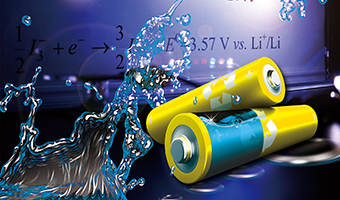
The short range of current batteries is a serious limitation for electric vehicles. With the increasing demand for environmentally friendly forms of transportation, the need to develop new rechargeable batteries with higher energy density is becoming more pressing.
Dr. Hye Ryung Byon and her team from the Byon Initiative Research Unit (IRU) report that they have developed an aqueous lithium-iodine battery with an energy density that is twice that of current lithium batteries.
The team shows that using an aqueous cathode involving the triiodide/iodide redox reaction results in an energy density of approximately 0.33kWhkg-1.
“Aqueous cathodes present many advantages – they are cheap, non-flammable and heavy-metal-free — and could contribute to the development of energy dense lithium-iodine batteries for practical energy storage,” explains Dr. Byon.
The study is published in the journal Nature Communications DOI: http://dx.doi.org/10.1038/ncomms2907
